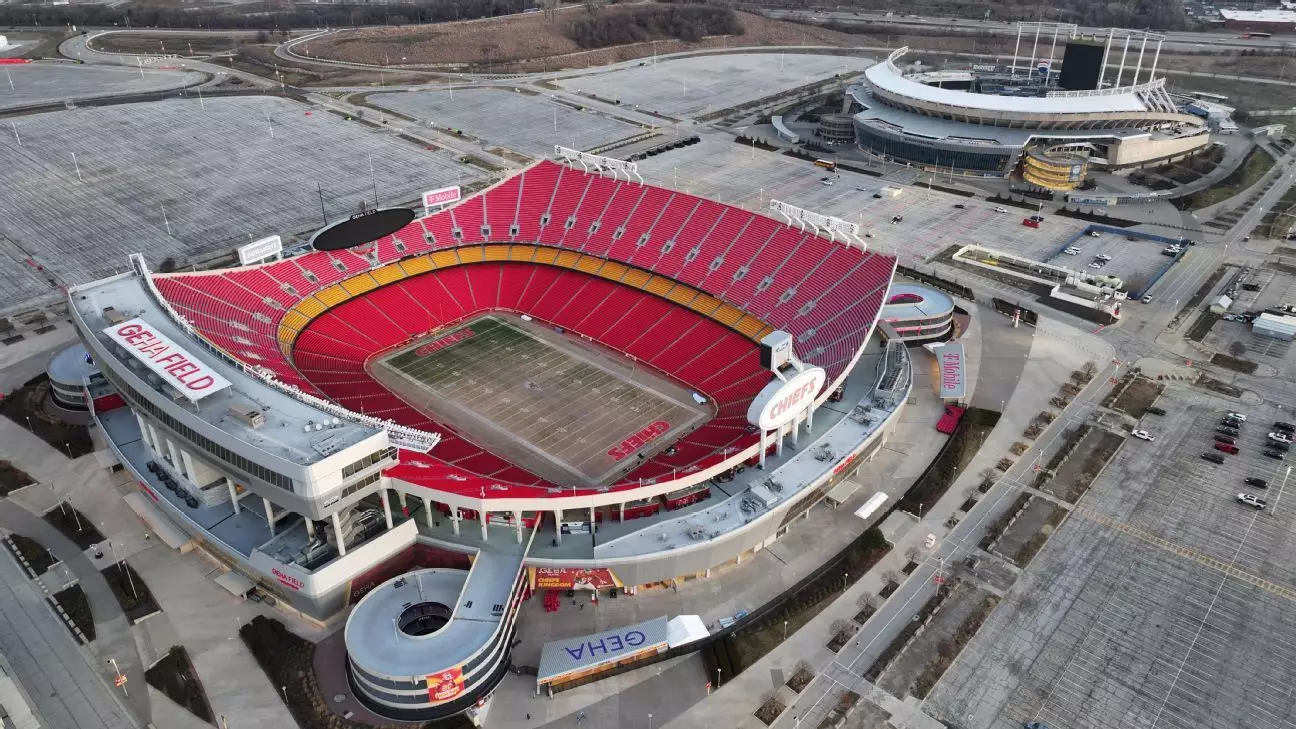In a bold move that highlights the intricacies of sports economics and regional loyalty, Missouri lawmakers recently pushed through a significant financial package aimed at retaining two of the state’s most beloved sports teams: the Kansas City Chiefs and the Kansas City Royals. This legislative maneuver comes on the heels of devastating natural disasters — particularly the tornadoes that tore through St. Louis in May, causing an estimated $1.6 billion in damage. The additional $100 million aid for reconstruction in St. Louis underscores the dual urgency of addressing immediate community needs while simultaneously engaging in the fierce competition for professional sports franchises.
The stakes couldn’t be higher as both the Chiefs and the Royals face a decision that could change their future in Missouri forever. Their lease agreements are set to expire in January 2031, and they are being lured by Kansas with the promise of substantial financial backing for new or renovated stadiums. The Missouri package, which aims to counter this aggressive outreach from Kansas, stands as not just a financial offer but a testament to the value that these teams hold within the state’s cultural and economic landscape.
Political Negotiations: A Balancing Act
Missouri’s Governor, Mike Kehoe, played a crucial role in brokering a deal that has managed to garner enough bipartisan support to pass through the Senate. The proposed aid doesn’t only encompass funds directly aimed at stadium improvements; it also includes provisions for disaster relief and potential tax breaks for homeowners grappling with rising bills. This multifaceted approach illustrates a political balancing act — an attempt to appease both local constituents impacted by disasters and affluent sports team owners seeking lucrative deals.
While some may applaud this negotiation as a beacon of collaboration and economic foresight, critics are quick to point out the potential pitfalls of publicly financing sports stadiums. Various economists argue that such measures do little to stimulate genuine economic growth, as they often lead to a mere redistribution of spending rather than the emergence of new revenue streams. This raises pertinent questions about whether taxpayer dollars should be leveraged for the benefit of billionaire team owners when core public services may be left underfunded.
Public Sentiment and Civic Responsibility
The dichotomy between public necessity and sports entertainment cannot be overstated. The willingness of lawmakers to funnel funds into sports infrastructure raises eyebrows especially when juxtaposed against the ongoing struggles that St. Louis residents face in the aftermath of natural disasters. The question looms: will the investment in stadiums truly benefit the taxpayers, or will it merely serve to enrich wealthy stakeholders?
It’s essential to consider how public sentiment plays into this equation. Sports teams often evoke a sense of community pride and cohesion, serving as unifying forces within their cities. Therefore, the thought of losing a sports franchise can evoke visceral reactions that most lawmakers are acutely aware of. Chiefs and Royals supporters may view these teams as integral to their regional identities, which could potentially sway public opinion in favor of funding even dubious projects.
Looking Beyond Missouri: Economic Models for Team Funding
The debate over the viability of public funding for sports stadiums has garnered national attention. Advocates point to examples from cities like Baltimore, New Orleans, and Nashville, where public investment has led to new stadiums that reportedly drive economic growth. However, skeptics like Patrick Tuohey from the Show-Me Institute caution against such romanticized views of sports funding, warning that they risk depleting local tax bases, thereby undermining the very fabric of community services.
As Missouri lawmakers grapple with this complex issue, it remains crucial to assess the long-term implications of where taxpayer money is allocated. Can the risks of public funding lead to meaningful returns, or are they merely feeding into a system that prioritizes entertainment over essential services? The renting and negotiating game played by the Chiefs and Royals suggests a larger commentary on the relationship between government, economics, and sports culture in America. As Missouri treads this precarious path, its decisions will echo well beyond the borders of its state, shaping dialogues about the future of sports financing in America.

